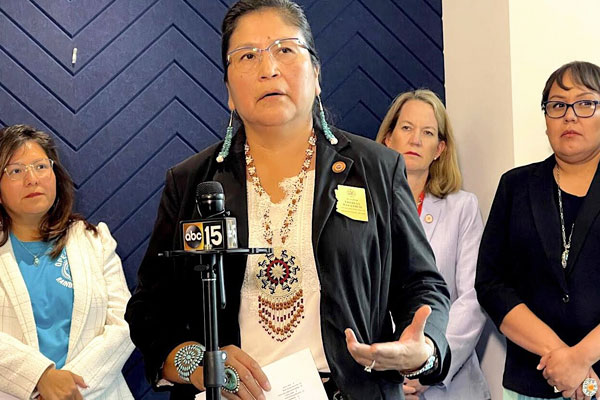AUDIO – TRIBES STILL UNDER ATTACK –
Sept. 2, 2023 – FORDHAM: Then last year, a cousin of hers back on the Navajo Nation in New Mexico was approached by a similar van. She was struggling with alcoholism, and the driver offered her a drink and a place to go. When she sobered up, she was in Phoenix. And when she managed to contact her family, Stewart picked her up and heard she’d been taken to a place calling itself a sober home. Things fell into place.
STEWART: This is why there’s white vans. This is what’s going on. So once I started advocating for that and putting it out there – this is what’s going on – more people started telling me what was going on.
FORDHAM: And many of the stories were tragic. A former patient, Raquel Moody, who is Hopi and White Mountain Apache, now works with Stewart. Her beloved cousin left the home they were in to get away from all the drinking there and died homeless shortly afterward.
RAQUEL MOODY: Sobriety was one thing that he really, really wanted. You know, he was a good guy. He was a funny guy, man. And, you know, when he has something serious he wants, you know, he’ll get it out, you know? And it’s what he wanted – was just to be sober.
FORDHAM: It took a while for stories of these homes to get wider attention. Some activists and officials say that’s because the people involved are often transient and have substance abuse and mental health problems. But gradually, tribal leaders, then Native politicians, then law enforcement, including the FBI, began raising the alarm and investigating until the scale of the problem and its financial incentives became clear.



